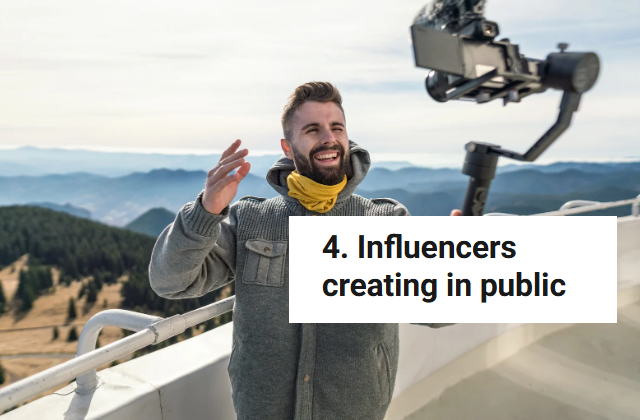The adage, “If it bleeds, it leads,” refers to the media’s tendency to headline stories involving death or violence, but it can also be used to point to people’s negativity bias. Simply put, people tend to pay more attention to negative news stories than positive ones.
A new study seems to reinforce this idea. And much to our surprise, it’s centered on headlines used in Upworthy stories.
Using a public archive of Upworthy headlines and traffic data from 2012 to 2015, two separate teams of researchers analyzed whether people’s click tendencies changed with negative or positive words in headlines. In those olden days of Upworthy, a handful of headlines for a single story were tested on the website to see which one would receive the most clicks. The research teams analyzed those results and found that negative words in headlines led to more people clicking on a story (2.3% more), and positive words in headlines led to fewer clicks (1.0% fewer). They also found a preference for headlines that express sadness over those that express joy, fear or anger.
The two research teams submitted their findings to the journal Nature at the same time in a bit of kismet shared here: “Two Research Teams Submitted the Same Paper to Nature – You Won’t BELIEVE What Happens Next!!” (For those outside media industry circles, “You won’t believe what happens next,” is a mocking pseudo-headline that came into use during the past decade and has generally been used to degrade the editorial choices of Upworthy and similarly-minded publishers in the early days of social media news.) The teams ended up combining their results in a joint study whose title sums up its conclusion: “Negativity drives online news consumption.”
While we appreciate the researchers’ work, we’re not convinced that 10-year-old Upworthy headlines and traffic are the most appropriate data to draw such a conclusion from. From our perspective, “negativity drives clicks” isn’t a clear takeaway here due to the fact that 1) the fast-changing media landscape quickly makes data obsolete, 2) the increases and decreases in clicks were quite modest, which matters a lot since 3) a negative word being used in a headline does not automatically equate to “negativity.”
To illustrate these points, let us offer a peek behind the editorial curtain here.
Upworthy gained unprecedented fame in the early 2010s for mastering the “curiosity gap” headline, and for a hot minute, it was incredibly successful. The “Upworthy-style” headline became all the rage and was emulated to some degree by media outlets of all stripes before losing its novelty and falling out of favor somewhere around 2014.
That was a decade ago.
A lot has changed since then, both in media at large and here at Upworthy. “You won’t believe what happens next,” is several proverbial lifetimes of change in the way all media outlets, including Upworthy, approach storytelling and how our audiences engage with that content. Headlines that got people clicking in 2013 wouldn’t be written or clicked on the same way today at all in our experience. So, it feels like conclusions about people’s click habits are being drawn from outdated data (a bit like comparing the respective value of a thrift store TV antenna with optimizing your 4K Netflix stream).
People have pointed out some irony in a seeming preference for negative words and sadness here at Upworthy, a website branded as a “positive news outlet.” However, that’s a simplistic characterization of our content. Upworthy has always shared positive, uplifting stories, to be sure, but it’s an ongoing misconception that Upworthy only covers “positive news.”
The original idea behind Upworthy was to “change what the world pays attention to” by sharing meaningful stories that highlight our common humanity, and that core ideal hasn’t changed. Often, yes, that means telling feel-good stories. But it also means shedding light on and exploring solutions to challenges facing humanity, which aren’t always positive or uplifting. Sometimes it means sharing a viral celebrity story that touches on an important issue or an experience many people can relate to. Sometimes it looks like tapping into people’s curiosity to help us all better understand the world we live in. We tell stories that uplift and stories that deserve to be uplifted, and our headlines reflect that range of storytelling.
So what should we take from an Upworthy headline study that found people were a little more likely to click on headlines with negative words and sadness in them?
Honestly? Not a whole lot.
We already know negativity bias exists. None of this is revelatory to us (except perhaps the finding that anger does not appear to drive more clicks—that one was a bit of a surprise, to be honest). We’ve always known that if we wanted to, we could sell our souls and exploit the crap out of people’s baser tendencies with our headlines to drive cheap clicks and make bank from it. But we don’t, because that’s not who we are.
Upworthy’s current editorial team takes a different approach to headlines than the folks who were here a decade ago. We don’t test multiple headlines anymore to see what clicks. Our process is more organic and intuitive, partly due to our own experience, partly due to lessons learned from our predecessors’ data-driven approach and partly due to appreciating the art of a conscientious-yet-effective headline.
Speaking of which, the term “clickbait” gets thrown around with the Upworthy name a lot, including in the study. We have some thoughts on that, too.
Upworthy pioneered a specific headline style that drove a ton of website traffic and lots of people copied that style because it was effective. But a headline that makes people want to click on a story and read it does not automatically make it “clickbait.” As long as the story itself is solid, a “clicky” headline is simply a good headline. There is no point in writers creating articles for a website if no one clicks and reads them, and a good headline will make people want to click and read. That statement shouldn’t be the least bit controversial.
Genuine clickbait is when a headline promises something that isn’t delivered in the story. It’s a bait and switch, purely to rack up pageviews. That is not and has never been Upworthy’s MO. Of course, we want people to read our stories—we wouldn’t be here if we didn’t think what we share was worth reading. But headlines are not articles, and every detail of a story can’t be included in a 90-character headline. Being misled by a headline and clicking into a story that doesn’t deliver is a clickbait problem. Having to actually click on and read an article to get the full story behind a headline is not.
Okay, back to negative words in headlines. Do we ever use them today? Of course, but not for clicks. The top negative words analyzed in the headline study were wrong, bad, awful, hate, war, worst, sick, fight, scary, and hell, and some stories honestly lend themselves to including such words in the headline. And more importantly, a headline with negative words is not necessarily negative.
The researchers point out that they removed headlines that included both positive and negative words to avoid muddying the waters. But searching our website archives from the time period in question for the negative word “wrong,” for example, reveals headlines that are not actually negative (unless you think proving an incorrect assumption wrong is a bad thing).
“The classic image of a farmer is a man. These stunning pics prove that wrong.” (Certainly not a negative story.)
“5 times Jimmy Carter proved the haters wrong” (This one has two negative words, “hate” and “wrong,” but still isn’t actually a negative headline or story.)
“The world tells us there’s something wrong with us if we don’t want to have sex. One chart proves the world wrong.” (The word “wrong” in here twice—still not really a negative headline and definitely not a negative story.)
We could go through countless examples like this, not to prove that negativity bias isn’t a thing (because we know it is) but to show that not all negative-word-including headlines are created equal. There are headlines in the archives that we’d never write today, some of which truly were negative, but many included a “negative” word but weren’t actually negative at all. In light of that and considering the small increase in clicks for headlines containing negative words, we’re not convinced that our archive of decade-old headlines is the best measuring stick to use when determining whether people are more drawn to negativity than positivity in news headlines.
We’re also not convinced it’s a particularly useful question. What we’re most interested in is whether people are drawn to content that highlights our shared humanity, connects people around important causes, brings people together in celebration of joy and helps them learn something fascinating about the world we live in. And sure enough, our audience keeps proving time and again that that’s what keeps them clicking, reading and sharing our stories, regardless of how many “positive” or “negative” words we include in our headlines.







































